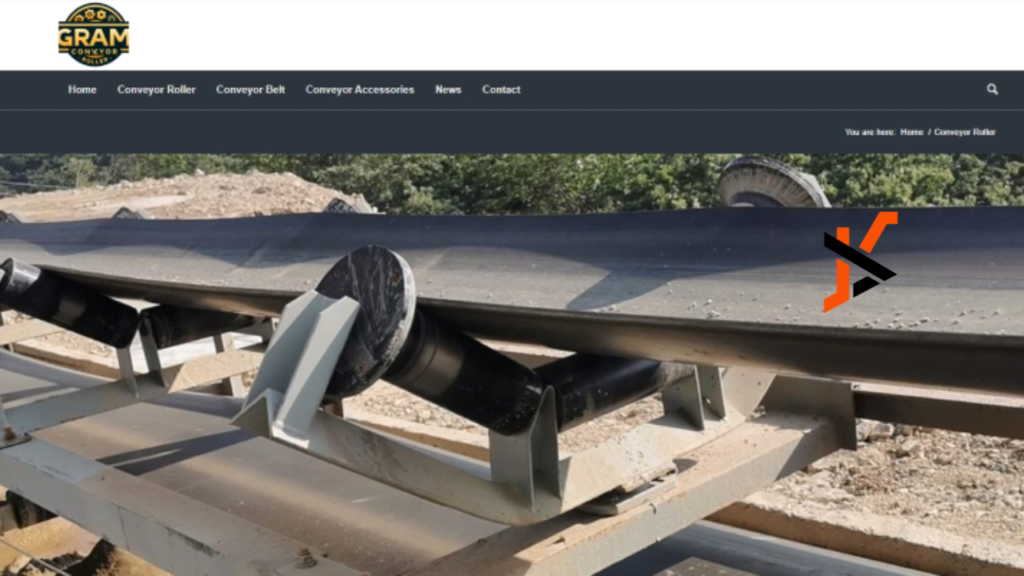Conveyor Impact Rollers are essential components in conveyor systems, protecting belts and reducing material spillage during high-impact loading. These rollers come equipped with rubber rings for enhanced durability and noise reduction, ensuring quieter operations. Material selection between steel and nylon rollers is crucial, with steel offering strength for heavy-duty loads, while nylon ensures lightweight, corrosion-resistant performance. They are suited for mining, quarrying, and recycling industries, compatible with carrying roller conveyor systems. Purchasing considerations include compatibility with load requirements, customization options, and roller bearings. Select the right conveyor roller to minimize downtime and maximize efficiency.
Definition and Functionality of Conveyor Impact Rollers
A Conveyor Impact Roller is a specialized type of conveyor roller designed to withstand high-impact loading. Positioned in belt impact roller compactors, impact rollers protect conveyor belts from the shock loads associated with dropping and transferring materials. This protection minimizes wear and tear on the belt, helping to prevent damage and extend its lifespan. Their primary function is to absorb the energy from impact forces, preventing belt punctures, minimizing material spillage, and ensuring the smooth transfer of materials. Incorporating impact rollers into a conveyor system significantly reduces costly downtime, repairs, and material loss.
Key Characteristics of Conveyor Impact Rollers
Key characteristics distinguish Conveyor Impact Rollers from other types of conveyor rollers. They often include rubber rings that provide enhanced durability, cushioning, and impact resistance. These rubber ring structures absorb and distribute the energy from impact forces, reducing vibrations and noise that would otherwise resonate throughout the conveyor belt system. This ability to dampen vibrations leads to quieter operations, making them an essential part of industries requiring constant high-volume throughput. The high resistance to impact also ensures that the rollers maintain their integrity and continue to operate efficiently over time, even in demanding environments.
Material Selection for Impact Rollers
Selecting the appropriate materials is crucial for ensuring the effectiveness and longevity of Conveyor Impact Rollers. Two common materials include steel and Nylon conveyor rollers, each offering unique benefits:
- Steel: Steel is known for its high strength and durability, making it suitable for heavy-duty operations where impact forces are frequent and severe. Steel rollers can support high load capacities, ensuring reliable performance in industries where heavy materials are transported.
- Nylon conveyor rollers: Impact rollers made of heavy-duty nylon are lightweight and offer quiet operation. Nylon provides excellent resistance to corrosion and chemical damage, making it suitable for highly corrosive or sensitive environments. Its low-friction surface also reduces wear on the conveyor belt and minimizes maintenance costs.
The load capacities of these rollers vary based on the material used and are designed to match specific requirements across different industries. Nylon’s lighter weight can significantly improve energy efficiency in applications where frequent loading and unloading occur.
Application of Conveyor Impact Rollers
Conveyor Impact Rollers play a pivotal role in heavy industries requiring the efficient and safe transport of materials. Their applications include:
- Mining, Quarrying, and Recycling: These industries often involve handling bulk materials that are heavy and abrasive. Impact rollers protect belts from the shock of high-impact loads, preventing belt punctures and material spillage.
- Carrying Roller Conveyor Systems: Impact rollers are compatible with carrying roller conveyor systems that move materials over long distances. This compatibility ensures that materials are safely transported without interruptions.
Considerations for Purchasing Conveyor Impact Rollers
Choosing the right Conveyor Impact Roller requires careful consideration to ensure that the roller aligns with your conveyor system’s specifications and operational requirements:
- Compatibility with Width and Load Requirements: The roller width should align with the conveyor system’s width, and the load capacity must accommodate the system’s throughput to prevent overloading and premature wear.
- Customization and Roller Bearings: Different bearing types and roller materials can be customized to match unique environmental and operational needs. Tapered or straight bearings can be selected based on the expected axial and radial loads, while rubber rings or nylon rollers offer varying levels of shock absorption.
- Material Choice: Steel is ideal for high-impact loads in harsh environments, while Nylon conveyor rollers are best suited for quieter, corrosion-resistant, and lightweight applications.
Making these considerations ensures that the chosen conveyor roller, Conveyor Impact Roller, or Nylon conveyor roller will provide optimal performance, minimizing system downtime and increasing overall efficiency.

